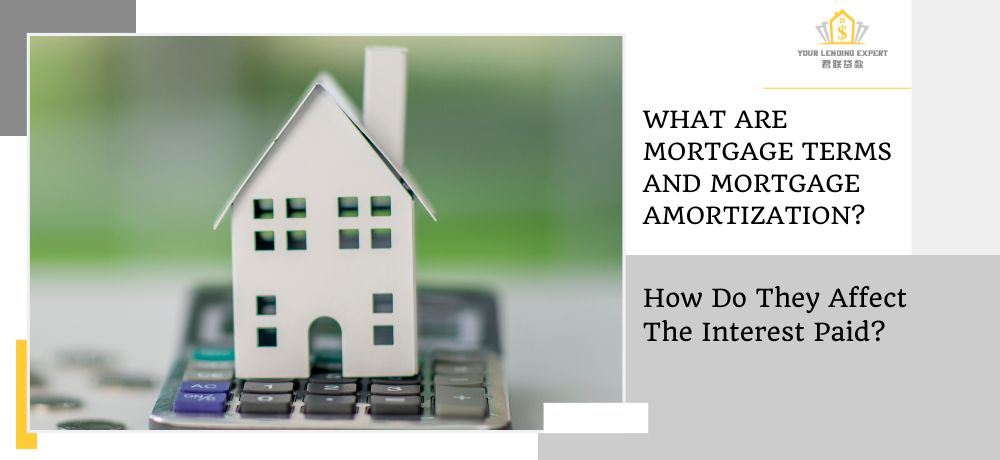
What Are Mortgage Terms And Mortgage Amortization? How Do They Affect The Interest Paid?
- Your Lending Expert - Mortgage Alliance
Categories: Mortgage Amortization , Mortgage Broker , Mortgage Terms
When it comes to securing a mortgage for your dream home, the choices you make regarding mortgage terms and amortization can significantly impact your financial landscape. Understanding these terms and their implications is crucial for making informed decisions that align with your long-term goals. Let's delve into the intricacies of mortgage terms, amortization, and how they influence the interest you pay.
Mortgage Term: Decoding the Length of Commitment
The mortgage term is the duration during which your mortgage contract holds sway. It encapsulates everything stipulated in your agreement, including the interest rate. Mortgage terms can range from a few months to several years, and you'll likely need multiple terms to fully repay your mortgage.
Types of Mortgage Terms
Shorter-Term Mortgage
Most Canadian mortgage holders opt for a term of 5 years or less. This shorter-term approach allows you to take advantage of lower interest rates initially and renew your mortgage contract sooner.
Longer-Term Mortgage
For those seeking stability, longer-term mortgages (beyond 5 years) offer the advantage of keeping the current mortgage conditions for an extended period. However, selling your home within the first 5 years of a longer-term mortgage might incur substantial prepayment penalties.
Convertible Term Mortgage
Some shorter-term mortgages offer the flexibility to be extended to a longer term, but this comes with a change in the interest rate. The new rate will typically align with the lender's offer for the longer term.
Mortgage Amortization: The Journey to Debt Freedom
Amortization refers to the time it takes to fully pay off your mortgage. The length of this period is an estimate based on the interest rate for your current term. If your down payment is less than 20%, the longest allowable amortization is 25 years.
How Amortization Affects Costs
Interest
Your mortgage term dictates the interest rate, which can be fixed or variable. Fixed rates remain constant throughout the term, while variable rates can fluctuate. Lenders may offer different rates for various term lengths, impacting your monthly payments.
Shop around for the best interest rate and consider negotiating with your lender or mortgage broker to secure favorable terms.
Penalties
Renegotiating your mortgage or paying it off prematurely can lead to prepayment penalties, which may amount to thousands of dollars. Consider your future plans – if you anticipate moving soon, a shorter term might be more suitable.
Amortization Period: Balancing Payments and Total Costs
The length of your amortization period directly affects your monthly payments and the total interest paid over time.
Considerations for Amortization
A longer amortization period results in lower monthly payments but entails higher overall interest payments. Be mindful of finding a balance that aligns with your financial goals.
Choosing Wisely: Renewing Your Mortgage
When it's time to renew your mortgage, be prepared for fluctuations in interest rates. Your decision to renew at a higher or lower rate can impact your budget and overall savings.
Consider your options carefully, weighing the potential savings against the risk of increased payments. Ultimately, selecting the right mortgage term and amortization period is a crucial step in securing your financial future.
At Your Lending Expert - Mortgage Alliance, we're dedicated to helping you achieve your homeownership and financial goals. Contact us today to learn more about how we can help you navigate the world of mortgages and find the right solution for your unique circumstances.
